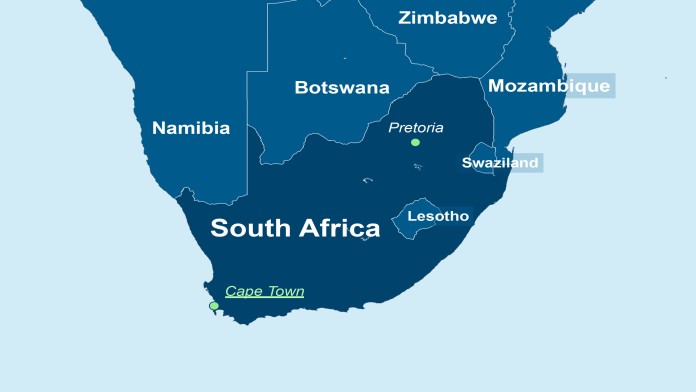
South Africa is the second largest economic nation in Africa after Nigeria. Since the end of apartheid, a stable democracy with a free press has developed. The World Bank classifies South Africa as an upper middle income country. It is the only African country to be included in the G20 economic powers and is one of the five BRICS countries. The country has great potential for renewable energies. It is blessed with mineral resources such as gold and diamonds, sun, wind and fertile land.
But the country also has a different side: it struggles with massive social inequalities. Unemployment, especially among young people, is appallingly high. Lack of perspective and social injustice lead to a high crime rate. Violence is the norm in some neighbourhoods. Women and children are particularly affected by this. There are other challenges in unsustainable energy generation. The economy still largely uses coal-fired power generation, which causes one of the highest carbon dioxide emission rates in the world. The COVID-19 pandemic hit the country hard, with continued lockdowns causing economic growth to collapse in 2020, but slowly recovering and moderate growth is anticipated for 2022 and 2023.
South Africa is one of eight global partners of the Federal Ministry for Economic Cooperation and Development (BMZ) that seek to solve global problems together. On behalf of the German Federal Government, KfW is supporting South Africa in a socially just energy and transport transition. Renewable energies, in particular wind power and solar energy, will be significantly expanded. Together with other international donors, Germany has committed to supporting a socially affordable energy transition. KfW is providing funds for this purpose, the disbursement of which is also tied to reforms in the energy sector. As the country has ideal conditions for the production of green hydrogen, KfW is financing a pilot project for the production of this sustainable energy source.
Social tension is high not only in the coal-mining areas, but also in the townships. Huge unemployment rates – up to 70% among young people – and social inequality result in one of the highest levels of violence and crime in the world. KfW invests in vocational training for young people and supports cooperation between the private sector and training institutions. It also supports the country in building a peaceful and inclusive society by financing violence prevention projects with a focus on violence against women and early childhood development.
Covid-19 hit South Africa hard. KfW is supporting the country in distributing vaccines and establishing its own vaccine production, which will benefit the entire African continent.
Germany’s development partnership with South Africa is helping the country overcome its remaining challenges.
KfW Office Pretoria
Director KfW Office: Silke Stadtmann
Hatfield Gardens, BLOCK E
P.O. Box 13732
333 Grosvenor St
Hatfield 0028 Pretoria
South Africa
+27 12 42 36 357
Fax: +27 12 42 36 360